KIA Niro: Servicing The Electrical System
Kia Niro - First generation - (DE) (2017-2022) - Service and Repair Manual / General Information / Servicing The Electrical System
- Prior to servicing the electrical system, be sure to turn off the ignition switch and disconnect the battery ground cable.
Warning
In the course of MFI or ELC system diagnosis, when the battery cable
is removed, any
diagnostic trouble code retained by the computer will be cleared. There fore, if
necessary, record
the diagnostic data before removing the battery cable.
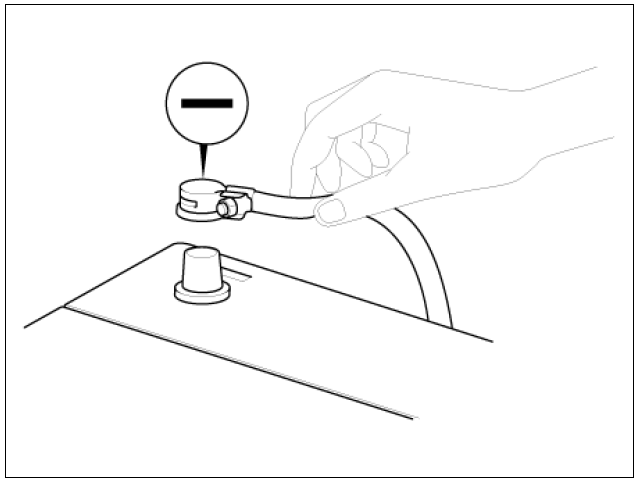
- Attach the wiring harnesses with clamps so that there is no slack.
However, for any harness which
passes the engine or other vibrating parts of the vehicle, allow some slack
within a range that does
not allow the engine vibrations to cause the harness to come into contact
with any of the
surrounding parts and then secure the harness by using a clamp.

- If any section of a wiring harness interferes with the edge of a parts, or a corner, wrap the section of the harness with tape or something similar in order to protect if from damage.
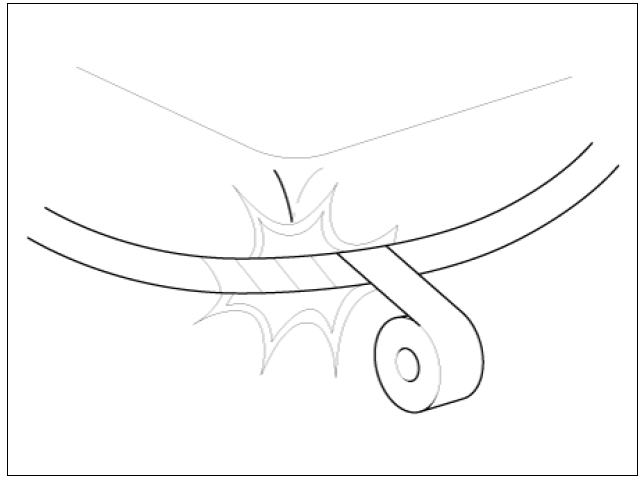
- When installing any parts, be careful not to pinch or damage any of the wiring harness.

- Never throw relays, sensors or electrical parts, or expose them to strong shock.
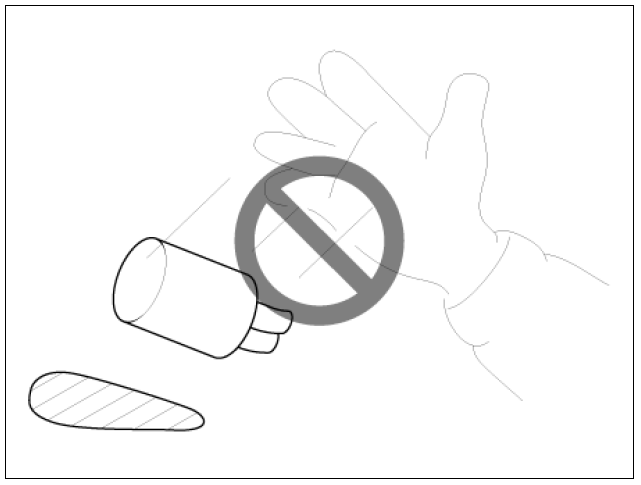
- The electronic parts used in the computer, relays, etc. are readily
damaged by heat. If there is a need
for service operations that may cause the temperature to exceed 80ºC
(176ºF), remove the
electronic parts before hand.
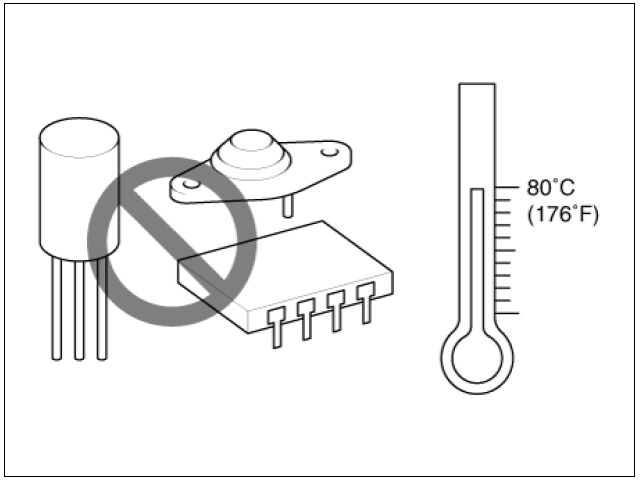
- Loose connectors cause problems. Make sure that the connectors are always securely fastened.
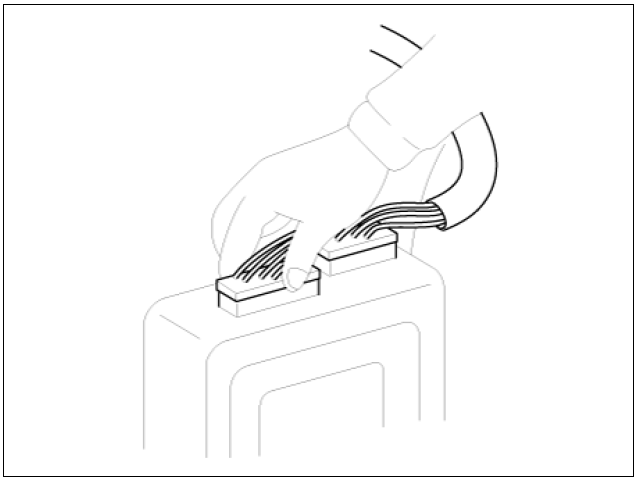
- When disconnecting a connector, be sure to grip only the connector, not the wires.
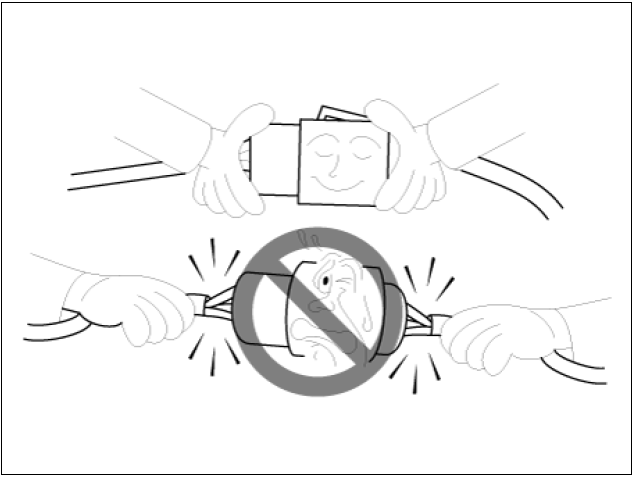
- Disconnect connector which have catches by pressing in the direction of
the arrows shown the
illustration.
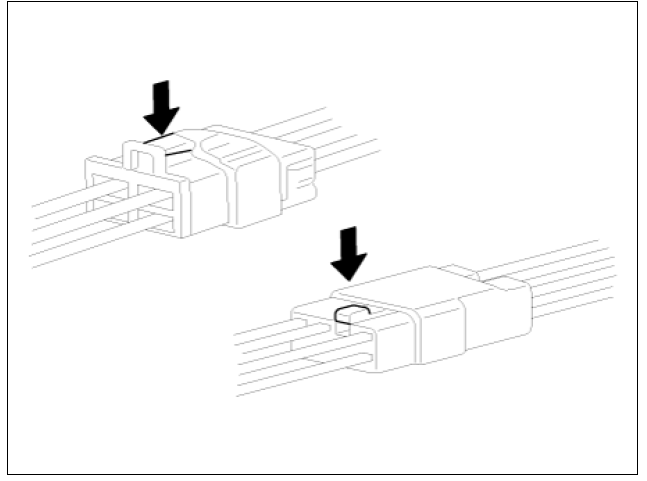
- Connect connectors which have catches by inserting the connectors until
they make a clicking
sound.
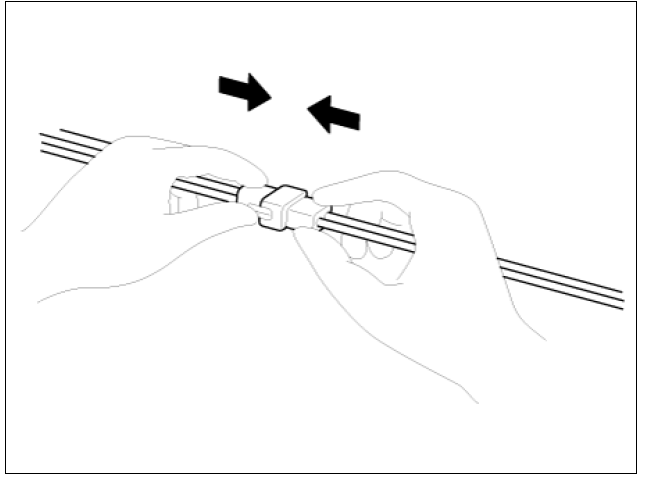
- When using a circuit tester to check continuity or voltage on connector terminals, insert the test probe into the harness side. If the connector is a sealed connector, insert the test probe through the hole in the rubber cap until contacts the terminal, being careful not to damage the insulation of the wires.
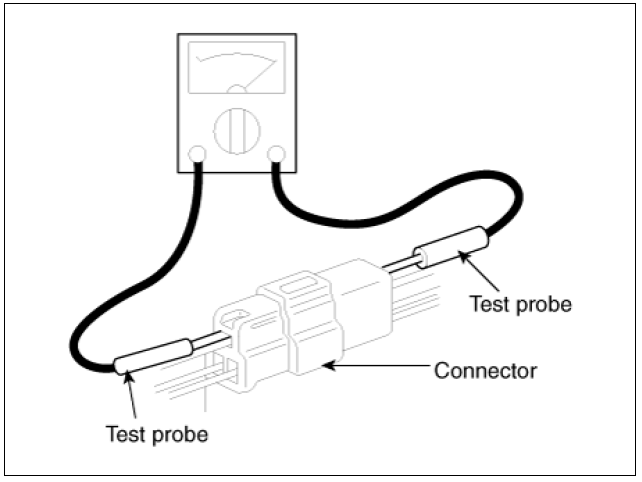
- To avoid overloading the wiring, take the electrical current load of the optional equipment into consideration, and determine the appropriate wire size.
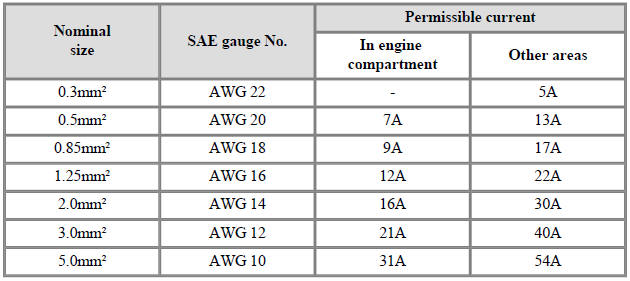
Precautions For Catalytic Converter
Warning
If a large amount of unburned gasoline flows into the converter, it may overheat and create a fire hazard. To prevent this observe the following precautions and explain them to your customer.
- Use only unleaded gasoline.
- Do not run the engine while the car is at rest for a long time. Avoid running the engine at fast idle for more than 10minutes and idle speed for more than 20 minutes.
- Do not measure engine compression for an extended time. Engine compression tests must be made as rapidly as possible. Remove the fuel pump relay before performing a compression test.
- Do not dispose of used catalytic converter together with parts contaminated with gasoline or oil.
READ NEXT:
 Identification Number Locations
Identification Number Locations
Identification Numbers
Identification Number Description
Vehicle Identification Number
World Manufacturer Identifier (WMI)
KNA : Passenger vehicle, MPV(Multipurpose Passenger Vehicle)/SUV(Sports
Utility Vehicle)/RV(Recreational
 Important Safety Notice
Important Safety Notice
Proper service methods and repair procedures are essential for safe, reliable
operation of all motor
vehicles as well as personal safety of the operator. The service procedures and
descriptions in this shop
manual provide general directions for
 Towing
Towing
If the vehicle needs to be towed, call a professional towing service. Never
tow vehicle with just a rope
or chain. It is very dangerous.
Front
Rear
Emergency Towing
There are three popular methods of towing a vehicle :
The operator loa
SEE MORE:
 Rheostat | Front Fog Lamps Repair procedures
Rheostat | Front Fog Lamps Repair procedures
Connector and Terminal Function
Rheostat Repair procedures
Removal
Disconnect the negative (-) battery terminal.
Remove the crash pad lower panel.
(Refer to Body - "Crash Pad Lower Panel")
Remove the crash
 The Air Cleaner
Element
The Air Cleaner
Element
Inspection
Remove the air cleaner element.
Check that the air filter is excessively dirty.
If the air filter is excessively dirty, replace the air cleaner element.
If the air cleaner element needs to be cleaned, blow compressed air as
Categories
- Home
- KIA Niro EV, Hybrid - Second generation - (SG2) (2021-2024) - Owner's manual
- Kia Niro - First generation - (DE) (2017-2022) - Service and Repair Manual
- Contact Us
